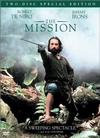Are we safer since 9/11? That's a question we hear over and over. What is the answer?
Well . . . it’s hard to say. The Voice of America article linked here addresses the question. Some say yes, some say no.
The attacks of September 11, 2001, demolished some of Americans’ basic assumptions.
We used to assume that in America we were safe. Now we realize that when a country is based on freedom as much as ours is, people with intent to harm are also free to make their plans—and can accomplish them. It would be very difficult for us to protect every vulnerable spot, no matter how much money we spend.
We used to assume that we were free to come and go as we pleased; we could hop on a plane and fly across the country. Now, we must wait in long lines for inspections before boarding planes. We don’t really mind doing that, but we grumble about its inconvenience because we were accustomed to passing right through those gates.
We used to assume that we didn’t have to be afraid. Now we are living with Fear, a nasty beast that peers with its black eyes over our shoulders at every turn. It poisons us.
We used to assume that we could, in general, trust people. Now we are less trusting, more suspicious, more condemning, more cynical and morose. We look everywhere for "the enemy." We are baffled by the idea that so many people are glad to commit suicide in order to kill others. We look for threats--suicide bombers, exploiters, hurricanes, earthquakes, tsunamis.
I am concerned about us. We are too obsessed with this, too fearful. The public voice talks about it too much.
Many people ask, "Where was God? Why did he let this happen?" Anne Graham Lotz had some things to say about that in an interview with Jane Clayson; this interview has been misquoted often and attributed to Bryant Gumbel.
The interview took place on CBS's "The Early Show" on the Thursday morning after the terrorist attacks. Jane Clayson, not Bryant Gumbel, conducted the interview with Anne Graham Lotz. According to the transcript of the broadcast, Clayson asked, "I've heard people say, those who are religious, those who are not, if God is good, how could God let this happen? To that, you say . . . ?"
Lotz replied, "I say God is also angry when he sees something like this. I would say also for several years now Americans in a sense have shaken their fist at God and said, God, we want you out of our schools, our government, our business, we want you out of our marketplace. And God, who is a gentleman, has just quietly backed out of our national and political life, our public life. Removing his hand of blessing and protection. We need to turn to God first of all and say, God, we're sorry we have treated you this way and we invite you now to come into our national life. We put our trust in you. We have our trust in God on our coins, we need to practice it."
Amen, I say.
Are We Safer Since 9/11?
https://connectionsgodandtheworld.blogspot.com/2006/09/are-we-safer-since-911.html










